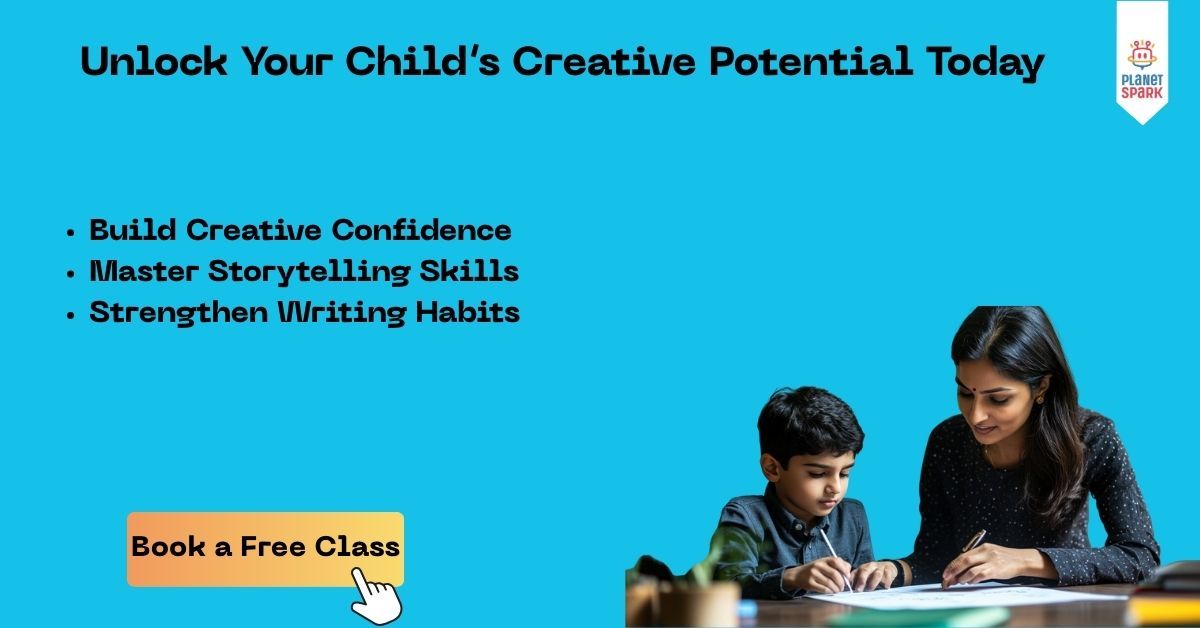The Ugly Duckling Short Story with Moral Lessons for Children

We all remember The Ugly Duckling, a simple yet profound story that has been told for generations. But have you ever thought about how its message fits into today’s world? From classrooms to workplaces, this short story teaches us about patience, resilience, and the beauty of being different.
Let’s dive deeper into The Ugly Duckling short story with morals and explore how its lessons still guide us through challenges, confidence struggles, and personal growth.
The Story of “The Ugly Duckling”: A Quick Recap
Once upon a time, in a peaceful countryside, a mother duck sat patiently on her eggs. When the eggs hatched, she was delighted to see bright yellow ducklings except one. The last egg cracked open to reveal a gray, awkward duckling who looked nothing like the others.
The farm animals laughed at him, calling him ugly and strange. The duckling felt hurt and out of place, so he left home to find acceptance elsewhere. Through the cold winter and lonely nights, he faced hunger, fear, and rejection. Yet he kept going.
One spring morning, he saw his reflection in a pond and realized he had grown into a graceful white swan. The same animals who once mocked him now admired his beauty. He had not changed who he was, he had simply grown into himself.
Here are the morals that make this story timeless and inspiring:
1. Embrace Your Uniqueness
- Every individual is born with something special that makes them stand out. The gray duckling looked different, but his uniqueness was his true strength.
- Instead of trying to fit into others’ expectations, embrace what makes you distinct. When you stop comparing yourself to others, you start discovering your true power.
- Uniqueness is what leads to innovation and creativity in life. The world needs diversity, not copies.
Example: Think of J.K. Rowling, who was once rejected by several publishers before Harry Potter became a global success. Her storytelling style was unique, and that is what made her shine.

2. Do Not Let Criticism Define You
- People tend to judge quickly based on what they see. The duckling was rejected because others could not see his true potential.
- Criticism can hurt, but it also teaches resilience. What matters most is how you respond to it — by proving your worth through action.
- When you stop depending on others’ validation, you become emotionally strong and self-assured.
Example: Walt Disney was fired from his first job because his boss said he lacked imagination. Today, his creativity has shaped generations through Disneyland and Disney films.
3. Be Patient with Your Growth
- True transformation takes time. Just as the duckling’s beauty revealed itself over the seasons, our personal growth also unfolds gradually.
- It is natural to feel discouraged when progress feels slow, but patience allows your skills and confidence to mature fully.
- Every experience, even failure, is a stepping stone to success.
- You can also explore inspiring tales like Tenaliraman Stories, which teach children about intelligence, quick thinking, and moral values through humor and wit. Just like The Ugly Duckling, these stories help kids learn life lessons while improving their speaking and storytelling skills.
Example: A plant does not bloom the day after it is planted. It takes consistent care and time before flowers appear. Similarly, a student learning a new skill may struggle initially but will master it with practice.
4. Surround Yourself with Positivity
- The environment you are in can either uplift you or pull you down. The duckling was constantly bullied on the farm, which made him feel unworthy.
- When he finally met the swans who accepted him, he thrived. This shows that the right company can help you discover your true potential.
- Surrounding yourself with positive and encouraging people builds confidence and helps you overcome self-doubt.
Example: Students tend to do better in classrooms where teachers motivate them rather than criticize them. Similarly, friends who encourage your dreams are the ones who help you grow.
Give your child the confidence to express, speak, and lead with clarity. Join PlanetSpark’s fun, story-based learning sessions that turn shy speakers into confident communicators
5. Believe in the Process of Change
- Life will not always be easy. The duckling went through storms and loneliness before discovering his true identity.
- Change is uncomfortable but necessary. Every struggle prepares you for something greater ahead.
- Trusting the process means understanding that everything you go through is shaping you into a stronger version of yourself.
Example: Consider a child learning to speak in public. The first few attempts may be filled with nervousness, but with practice and feedback, confidence grows naturally.
The Modern Relevance of The Ugly Duckling
In today’s fast-paced world, filled with social media comparisons and unrealistic standards, the moral of The Ugly Duckling becomes even more powerful.
- For Children: It encourages them to accept themselves, even if they feel different from their peers.
- For Parents: It teaches patience and understanding, reminding them that every child develops at a different pace.
- For Teachers: It reinforces the value of appreciation and support in a child’s learning journey.
- For Professionals: It reminds them that setbacks do not define their worth and that persistence brings long-term success.
Why Stories Like “The Ugly Duckling” are Essential
Stories are not just a source of entertainment; they are mirrors reflecting real-life emotions and situations. Teaching children through stories makes moral learning enjoyable and impactful.
Here is why stories matter in education:
- Emotional Development: Children learn to recognize emotions like sadness, courage, and joy by relating to characters. It helps them understand empathy and kindness.
- Moral Understanding: The story teaches patience, perseverance, and acceptance, values that form a strong character foundation.
- Language Growth: Through storytelling, children naturally develop vocabulary, sentence structure, and listening skills.
- Critical Thinking: Discussing stories helps children analyze situations, improving reasoning and problem-solving abilities.
- Confidence Building: When children retell stories or act them out, they gain confidence in expressing their thoughts publicly.
Example: Teachers often use stories like The Lion and the Mouse or The Ugly Duckling to explain how even small acts of kindness or self-belief can make a big difference.
Morals We Learn from The Ugly Duckling
Let us look closely at the beautiful morals this story teaches:
- Do not judge anyone by their appearance: True beauty lies within, not in how someone looks.
- Every struggle leads to growth: Challenges shape your personality and resilience.
- Confidence and patience reveal beauty: Inner confidence brings out the best version of you.
- Everyone has a place in this world: You may not fit everywhere, but there is always a place where you truly belong.
- Believe in yourself even when others doubt you: Self-belief is the first step toward success.
- Kindness changes lives: A single act of compassion can transform someone’s outlook completely.
Example: A kind teacher who encourages a hesitant child to participate in class might help that student discover a lifelong passion for public speaking.
How Parents Can Apply These Morals at Home
Parents can help children understand the deeper messages of stories like The Ugly Duckling by turning them into everyday lessons.
- Encourage Self-Belief: Remind children that being different is not a weakness. Tell them stories of people who succeeded because they embraced their individuality.
- Celebrate Progress: Instead of focusing only on grades or results, appreciate effort and growth. This helps children stay motivated.
- Discuss Feelings: Ask how they would feel if they were in the duckling’s place. This builds empathy and emotional awareness.
- Model Positivity: Children imitate their parents. Show optimism and kindness in your daily actions.
- Read Together: Bedtime storytelling creates bonding moments and strengthens both communication and imagination.

How PlanetSpark Helps Children Discover Their True Potential
Just like the duckling found his strength through experience, every child can discover their voice and confidence when guided the right way.
PlanetSpark empowers children to express themselves boldly through its Public Speaking, Communication Skills, and Personality Development programs.
Here is how PlanetSpark brings real transformation:
- Confidence Building: Children are encouraged to speak in front of others, participate in discussions, and express ideas clearly. Gradually, they overcome fear and self-doubt.
- Interactive Learning: Lessons include storytelling, games, and debates to make learning exciting and engaging. Kids learn best when they are having fun.
- Personalized Coaching: Every child is unique. PlanetSpark mentors understand this and offer customized feedback to match each learner’s personality.
- Real-World Relevance: Skills learned here are useful in school, competitions, and daily communication, building lifelong confidence.
- Skill for Life: Beyond grammar or vocabulary, children learn empathy, leadership, and the ability to connect meaningfully with others.
Example: A shy student who hesitated to speak up in class begins leading group projects and participating in public events after PlanetSpark training.
Conclusion
In conclusion, The Ugly Duckling short story with morals beautifully reminds us that self-worth is not defined by others’ opinions but by our belief in ourselves. Just like the duckling who grew into a graceful swan, every child needs the right guidance, encouragement, and patience to reach their full potential. This story teaches the power of perseverance, kindness, and self-acceptance and values that are essential in real life. With PlanetSpark’s learning programs, children can discover their voice, overcome hesitation, and shine with confidence. Let your child’s journey be a reflection of the duckling’s transformation and from self-doubt to self-belief.
Frequently Asked Questions
The main moral is that true beauty lies within. Just like the duckling who turned into a swan, it reminds us that everyone has their own time to bloom. This lesson encourages children to believe in their journey and trust that their hard work and patience will lead them to success. With PlanetSpark, kids learn to see their strengths and grow confidently, much like the duckling’s transformation.
This story teaches kids to embrace kindness, patience, and self-acceptance. It helps them understand that being different is not a flaw but a sign of individuality. PlanetSpark uses such moral-driven stories to help children build empathy and develop confidence in expressing who they truly are.
Parents can connect the story to real-life situations. For example, when a child feels left out or compared to others, remind them of the duckling’s journey. PlanetSpark’s storytelling-based learning sessions make these conversations interactive and engaging for both parents and children.
Just like the duckling found his wings through experience, PlanetSpark helps children discover their confidence through practice and mentorship. Its programs focus on communication, expression, and public speaking and skills that empower kids to overcome shyness and shine with self-belief. PlanetSpark turns every child’s learning journey into a real-world transformation story.
PlanetSpark caters to children between 4 to 16 years, offering tailored modules that suit their developmental stage. Whether your child is learning to express ideas clearly or preparing to speak confidently in public, PlanetSpark provides age-appropriate guidance and fun-filled sessions that help them grow emotionally and intellectually.
Absolutely. Storytelling enhances vocabulary, fluency, and emotional awareness. When children narrate or discuss stories like The Ugly Duckling, they learn to organize thoughts, express emotions, and engage their audience. PlanetSpark incorporates storytelling as a key tool to build communication and leadership skills in young learners.
Download Free Worksheets
Personalized Communication Report
Record a video to get a AI generated personalized communication report for your child

Hi There, want to try these
tips for your child with
LIVE with our expert coach?
Let's check your child's
English fluency

